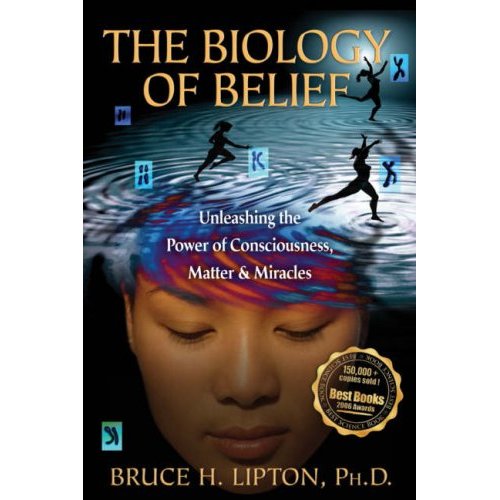The placebo effect is created by your perception and belief, so it is really all about the power of your mind that you have given to a certain medicine that it will cure you.
Placebos are estimated to have an effective rate of about 30-50%. If the placebo effect is really the power of your mind then concentrating on healing yourself will bring equal results if you would believe equally in the power of your own mind as you do in useless antidepressants (Antidepressant drugs don’t work – official study).
If 30-50% effectiveness is for ‘untrained’ healers, then what if you would focus to increase your healing ability every day of your life?
Highly recommended:
Dr. Bruce Lipton Ph.D.: The New Biology – Where Mind and Matter Meet (Please watch this video. It will change your life forever. Bruce Lipton’s book The Biology of Belief: Unleashing the Power of Consciousness, Matter, & Miracles was awarded to be the best science book 2006.)
was awarded to be the best science book 2006.)
PS: Isn’t western medicine accusing alternative medicine practitioners of selling ‘snake oil’ and placebos to their patients?!!!
_____________________________________________________________________________
Half of Doctors Routinely Prescribe Placebos
Half of all American doctors responding to a nationwide survey say they regularly prescribe placebos to patients. The results trouble medical ethicists, who say more research is needed to determine whether doctors must deceive patients in order for placebos to work.
The study involved 679 internists and rheumatologists chosen randomly from a national list of such doctors. In response to three questions included as part of the larger survey, about half reported recommending placebos regularly. Surveys in Denmark, Israel, Britain, Sweden and New Zealand have found similar results.
The most common placebos the American doctors reported using were headache pills and vitamins, but a significant number also reported prescribing antibiotics and sedatives. Although these drugs, contrary to the usual definition of placebos, are not inert, doctors reported using them for their effect on patients’ psyches, not their bodies.
In most cases, doctors who recommended placebos described them to patients as “a medicine not typically used for your condition but might benefit you,” the survey found. Only 5 percent described the treatment to patients as “a placebo.”
The study is being published in BMJ, formerly The British Medical Journal. One of the authors, Franklin G. Miller, was among the medical ethicists who said they were troubled by the results.
“This is the doctor-patient relationship, and our expectations about being truthful about what’s going on and about getting informed consent should give us pause about deception,” said Dr. Miller, director of the research ethics program in the department of bioethics at the National Institutes of Health.
Read moreHalf of Doctors Routinely Prescribe Placebos

